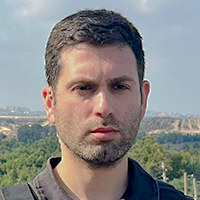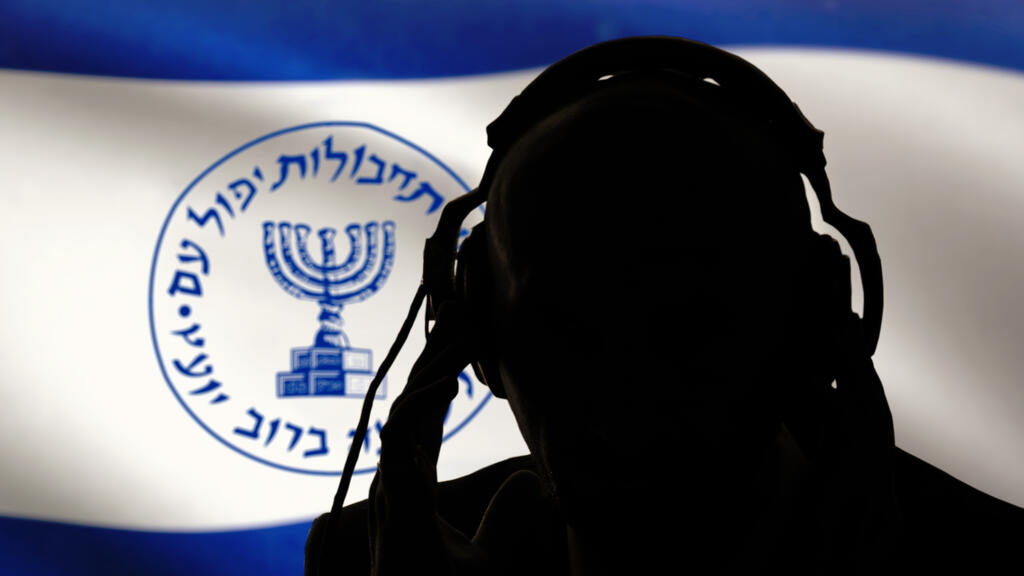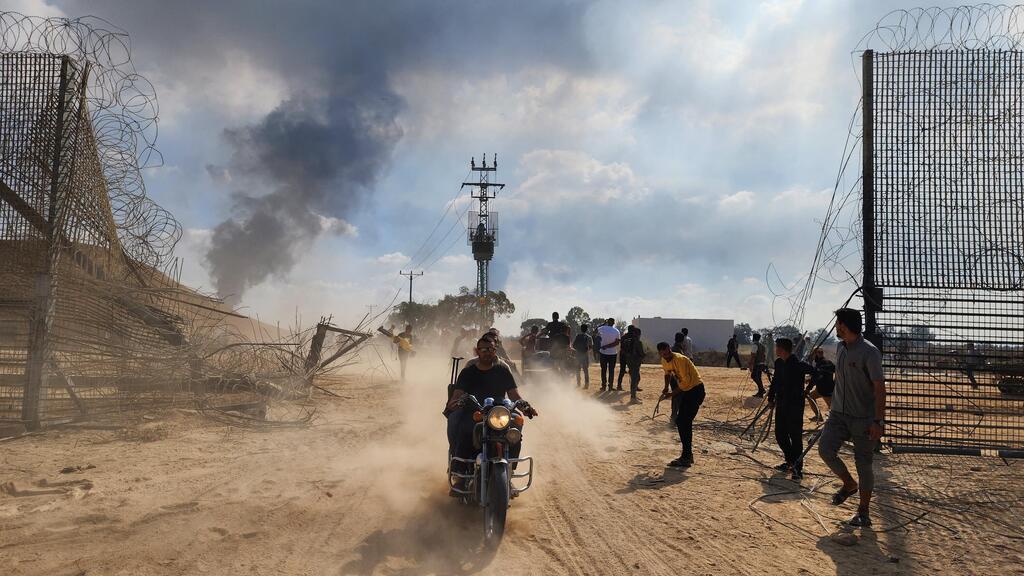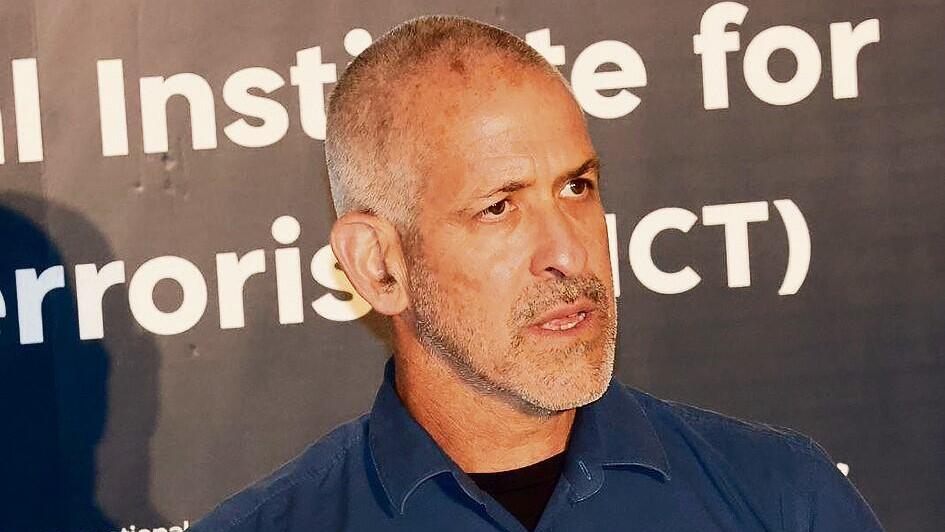Getting your Trinity Audio player ready...
The Shin Bet on Tuesday published its probe into the failures of Hamas' October 7 attack. The agency has taken responsibility for its failure to prevent the assault, accusing Prime Minister Benjamin Netanyahu's policies over the past decade and a half of fueling the terror group's rise. In a written statement to the press, the security agency outlined its findings from an internal investigation into the Hamas invasion that marked the start of the surprise war.
The report, which spanned only eight pages, echoed the findings of the IDF's investigations, with both organizations blaming Netanyahu's approach of separating the Palestinian Authority and Hamas.
4 View gallery


Shin Bet chief Ronen Bar, Prime Minister Benjamin Netanyahu
(Photo: Yair Sagi, Alex Kolomoisky)
The Shin Bet, however, delivered much stronger, more direct accusations: “The main reasons for Hamas' rise and the subsequent attack include a policy of calm that allowed Hamas to strengthen, Qatari funding to its military wing, an erosion of Israeli intelligence and the ongoing treatment of prisoners, all of which encouraged Hamas to act."
The agency insists it did not underestimate the threat posed by Hamas, saying: “There was a deep understanding of the threat and efforts to thwart it, particularly targeting Hamas leaders.”
Failure to recognize invasion plans
The Shin Bet acknowledged failing to fully comprehend Hamas’ invasion plans, which were detected by Israeli intelligence in 2018 and 2022. “These plans were never fully processed as an imminent threat, which led to a lack of preparation,” the report read. “This failure impacted intelligence gathering and decision-making in the hours leading up to the war.”
The agency also admitted shortcomings in its internal coordination with the IDF and its failure to integrate data from the Military Intelligence Directorate regarding the possible threat from Hamas. Despite receiving alerts about unusual mobile phone activity from Hamas terrorists in Gaza, the Shin Bet did not act swiftly enough.
The agency did release some early warnings, such as at 3:03 a.m. on October 7, providing intelligence about Hamas' potential offensive. However, the report read that, while the alert signaled an escalation, it did not specify the scale or timing of the attack.
Acknowledging past failures and improving future operations
The Shin Bet’s investigation noted that its intelligence operations in Gaza had suffered due to restricted operational freedom and a lack of comprehensive coverage in the years leading up to the attack. Although sensor installations had been made in Gaza, the Shin Bet admitted that these did not fully mitigate the intelligence gaps prior to the attack.
Get the Ynetnews app on your smartphone: Google Play: https://bit.ly/4eJ37pE | Apple App Store: https://bit.ly/3ZL7iNv
The investigation also revealed operational failures in its human intelligence (HUMINT) network, which had been weakened in recent years. In 2018, a significant blow was dealt to the HUMINT infrastructure in Gaza after a failed operation, resulting in long-term damage to intelligence gathering capabilities.
The Shin Bet also pointed to a lack of collaboration between its own analysis and that of IDF intelligence, creating further gaps in understanding the evolving threat landscape. Despite identifying some warning signs, such as heightened Hamas activity and the mobilization of phone SIM cards in Gaza, the Shin Bet did not have the necessary information to fully assess the danger in time.
The road to October 7
Shin Bet also traced the roots of the October 7 attack to earlier years. Between 2018 and 2021, Israel maintained a policy of economic concessions to Hamas in exchange for calm. However, Shin Bet claimed that, despite the apparent success of Operation Guardian of the Walls in 2021, Hamas emerged stronger, using Iranian and Qatari funding to build a military force capable of launching an organized, armed and fortified attack.
The agency noted that, by 2021, Hamas had dramatically increased its efforts to direct terrorism against Israelis from the West Bank. The Shin Bet had developed plans to combat these threats but the Israeli government rejected them throughout 2022 and 2023.
Despite these efforts, the Shin Bet sent multiple warnings to the government in the months leading up to the October 7 massacre, pointing out the increasing motivation of Israeli enemies to strike amid rising internal divisions and strategic erosion.
Regarding the agency's operations from the morning of the war's outbreak, the investigation noted the opening of relevant command posts for combat, locating hostages, identifying the missing, locating terrorist cells and manning operations room for coordinating efforts to locate and eliminate the terrorists who participated in the massacre and returned to Gaza.
The Shin Bet also initiated the rapid establishment of an interrogation facility for Hamas terrorists, whose quick results greatly assisted forces maneuvering within Gaza.
The agency noted that as a result of its lessons learned it took several actions: the creation of an "online" intelligence and warning control unit; an in-depth review, which is underway, challenging assumptions and undergoing changes within the organization's research division; establishing a joint counter-terrorism financial unit with the IDF; setting up a department for Gaza-based interrogators; creating warning models for each counter-terrorism division; and beginning staff work to improve collaboration with the IDF intelligence's Unit 8200.
"We did not prevent the October 7 massacre," said Shin Bet chief Ronen Bar. "As the head of the agency, I will carry this heavy burden for the rest of my life. Had the Shin Bet operated differently, both in the years leading up to the attack and on the night of the attack — professionally and in terms of management — the massacre would have been prevented.
"This is not the standard we expected, nor the Israeli public expected from us. We did not underestimate the enemy, according to the investigation; on the contrary, there was an initiative for action, an attempt to engage and efforts to cut off the threat while it was still in its infancy, yet we failed," Bar said.






